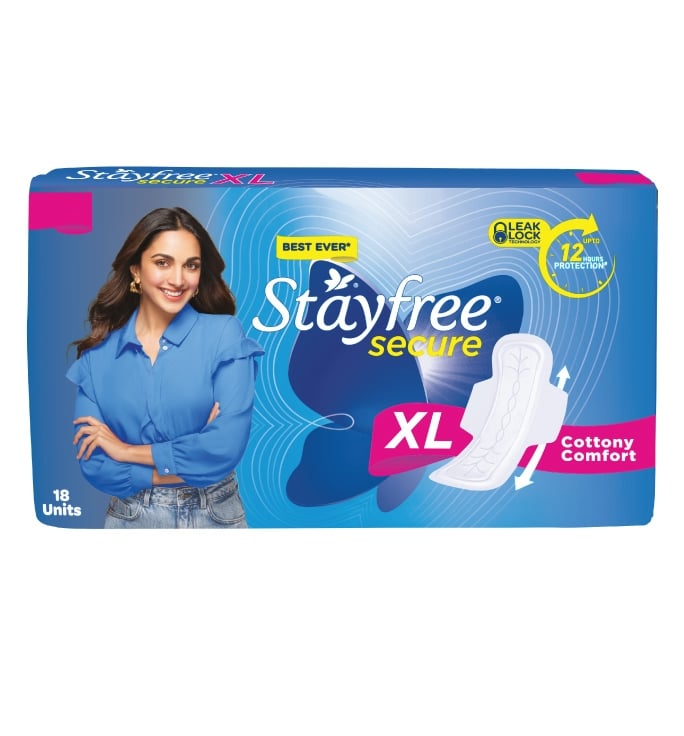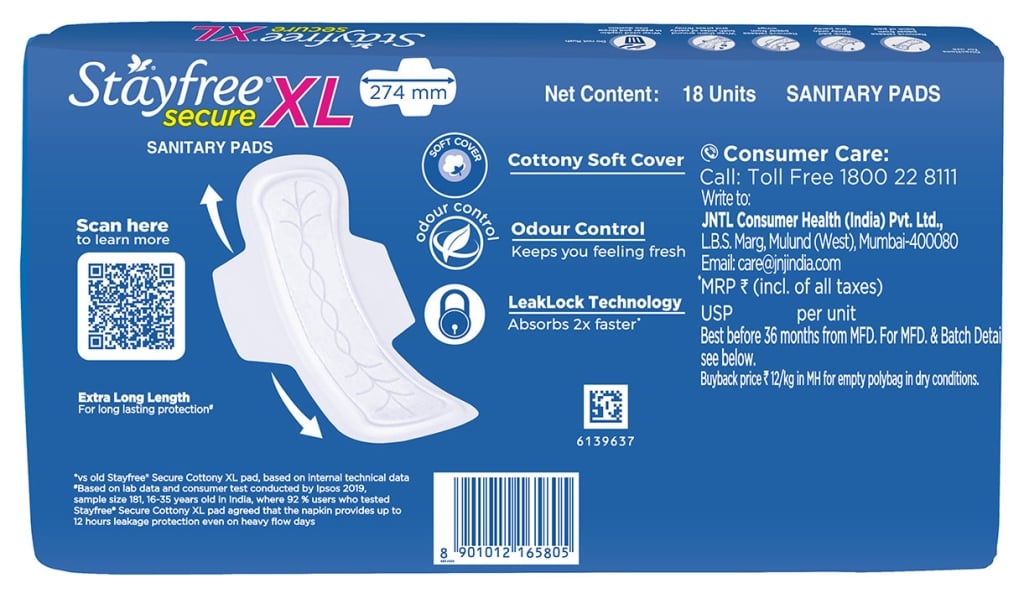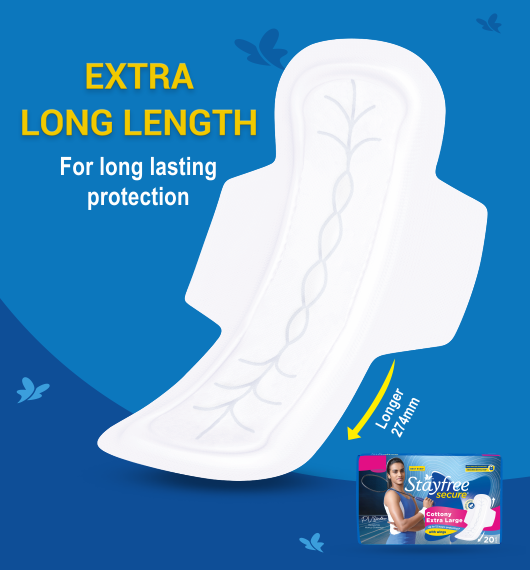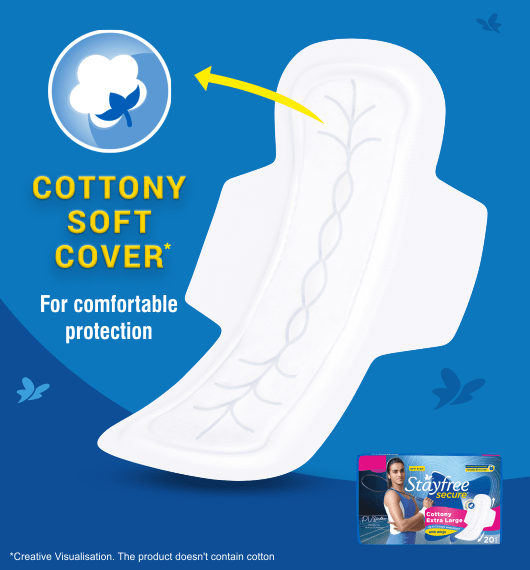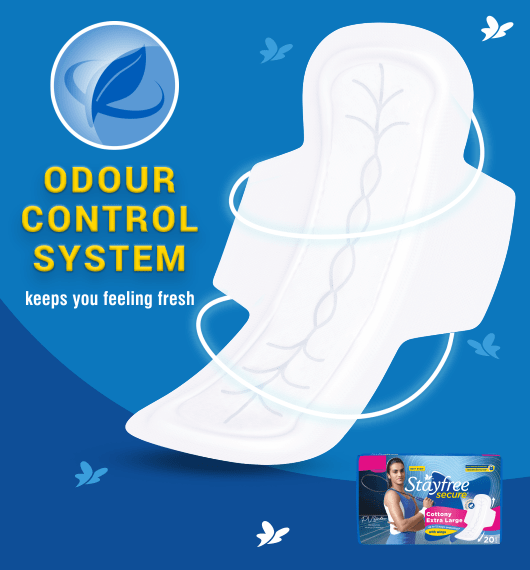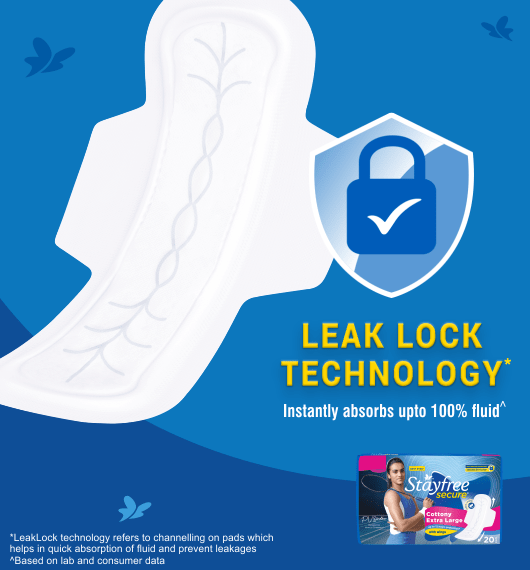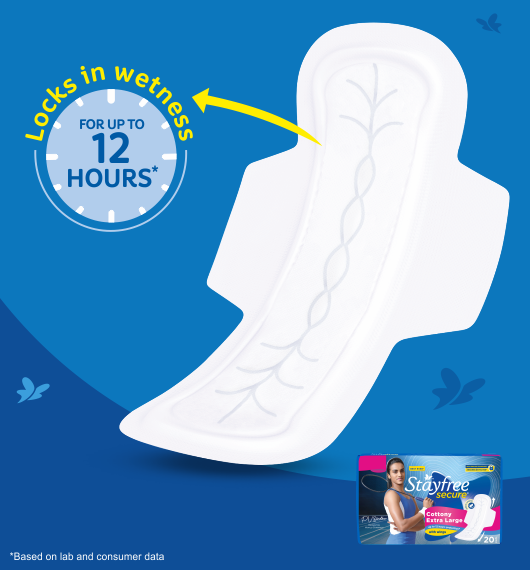Stayfree® Secure Cottony XL
Length of pad: XL (274mm) Extra large length for long lasting protection
Cottony soft cover for a comfortable feel and helps avoid rashes^
The channels on the pad absorb 2x faster* and locks in wetness
^Based on lab and consumer data | *vs old Stayfree® Secure Cottony XL pad, based on technical data
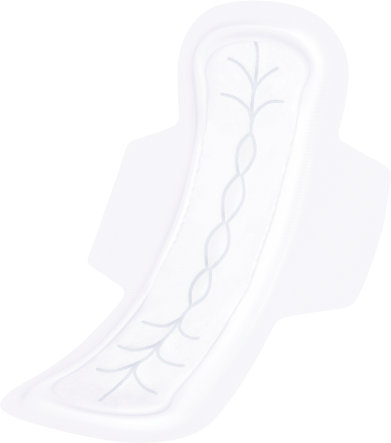

Cottony Soft Cover
Helps avoid rashes^

Leak Lock Technology
instantly absorbs up to 100% fluid^

Odour Control
Keeps you feeling fresh
Directions to Use

STEP 1
Remove release paper from back of pad

STEP 2
Stick pad firmly onto the panty

STEP 3
Remove release paper from wings

STEP 4
Wrap them around both sides of panty and press firmly

STEP 5
Wrap used napkin in paper and throw into bin.
NOTE: DO NOT FLUSH
Watch the Best Ever Stayfree® Secure XL live in action
Along with superior absorption and rewet performance, the extra-large length provides long lasting protection from leakage so that you don’t have to stop
Stayfree Secure XL #DinTumhareSaathChalega | Kiara Advani
Don't let periods deter you from your day-long hustle and your can-do spirit in pursuit of your goals. Kiara gets that confidence with Stayfree Secure XL's leak-lock technology that protects her for up to 12 hours, so she can make the most of any opportunity that the day brings her way.
Period Basics: Know More
Everything Periods
Menstrual Cycle Stages & More
There are four phases within menstrual cycle and can last between 24 to 38 days. Let's get to know the way each phase can affect you with Stayfree® India.
Growing up
Having the period conversation with your daughter
Talk to your daughter that a getting period is normal and healthy. Here are some tips for talking to your daughter about menstruation cycle to break society stigma around period.

